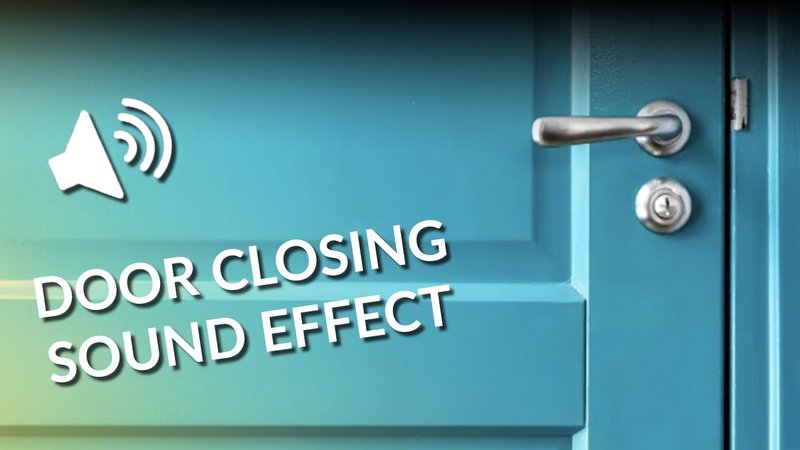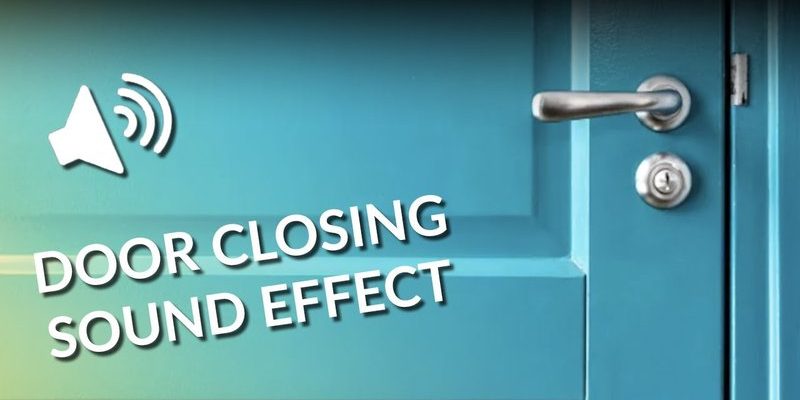
Picture this: your door is like a person trying to fit into a too-small outfit. Sometimes, it doesn’t quite align right, which leads to those awkward sounds. If you’re dealing with a patio door, an interior door, or even your front door, the reasons might vary, but the click can often point to the same underlying issues. Let’s dive into this common annoyance and see if we can unravel the mystery together.
Understanding the Anatomy of a Door
To get to the bottom of that loud clicking sound, it helps to understand how doors work. A door is made up of several components, including the frame, hinges, latch, and striker plate. Each of these parts plays a role in how the door opens, closes, and stays shut.
When you close a door, the latch extends into the striker plate, creating a secure fit. If something is off in this process—whether due to misalignment, wear and tear, or even dirt buildup—you might hear that annoying click.
Think of it like a puzzle. If a piece is slightly out of place, it can create a gap or misalignment, leading to those unexpected sounds. This understanding sets the stage for troubleshooting.
Common Causes of Clicking Noises
So why is your door making that loud clicking sound? Let’s break down some of the most common culprits:
- Misaligned Hinges: Over time, door hinges can become misaligned due to wear and tear or humidity changes. When the door doesn’t sit properly, it can cause the latch to hit the striker plate awkwardly, resulting in a click.
- Worn-Out Latch: Like any other mechanical part, latches can wear out. If the latch isn’t engaging smoothly with the striker plate, it might create that loud sound when closing.
- Debris or Dirt: Sometimes, simple dirt and dust can accumulate in the hinges or latch, causing them to function poorly. A quick cleaning might just do the trick!
- Temperature Changes: Wood and metal expand and contract with temperature changes. If your door is made of wood, this could affect its fit, leading to clicks when closing.
Understanding these causes is crucial before diving into fixes. You might be wondering, “How do I know which one it is?” Don’t fret—we’ll tackle that next.
Troubleshooting Your Door’s Clicking Sound
Now that we’ve identified the potential causes, it’s time to troubleshoot. Here’s a simple step-by-step guide you can follow to diagnose the problem:
1. Inspect the Hinges: Start by checking the hinges for any visible signs of wear or rust. If they look rusty or squeaky, a little lubricant might help.
2. Check the Latch and Striker Plate: Close the door slowly and listen carefully. Does the latch seem to struggle to engage with the striker plate? If it feels off, it might be misaligned or worn out.
3. Look for Debris: Examine the area around the hinges and latch for any dirt or grime. A quick clean with a damp cloth can work wonders.
4. Test Alignment: When the door is closed, see if there are gaps between the door and the frame. If you notice any, that could signal a misalignment problem.
This process should give you a clearer picture of what’s happening. Honestly, most issues can be fixed easily with just a little bit of tinkering.
How to Fix Common Door Issues
If you’ve found the culprit of your door’s loud clicking sound, you may want to tackle some fixes. Here are a few simple solutions that might help:
- Realign the Hinges: Use a screwdriver to tighten any loose screws on the hinges. If the door still seems off, consider replacing the hinges entirely.
- Adjust the Latch: To fix a misaligned latch, use a chisel, if necessary, to enlarge the hole in the striker plate for a better fit.
- Lubricate the Parts: Apply a silicone-based lubricant to the hinges and the latch to ensure smooth operation.
- Clean Regularly: Make it a habit to check your door’s hardware and clean it periodically. Keeping dirt at bay can prevent future noise problems!
These fixes can often resolve the issue without needing professional assistance, saving you time and money.
When to Call a Professional
While many door issues can be fixed at home, sometimes the problems are deeper than a simple adjustment. You might want to reach out to a professional if you notice:
– Severe Warping: If your door is noticeably warped, it might need replacing.
– Structural Damage: Check for cracks in the door frame that could indicate bigger issues.
– Inconsistent Closing: If the door doesn’t close at all, it might be a sign of serious alignment problems that require a professional touch.
Not all problems are DIY-friendly, and that’s perfectly okay. Knowing when to call in an expert can save you from further problems down the line.
Preventing Future Clicking Sounds
Now that you’ve tackled the clicking issue, you might be wondering how to keep it from coming back. Preventive maintenance is key! Here’s what you can do:
- Routine Inspections: Set a reminder to check your door’s hinges, latch, and frame every few months. A little attention goes a long way.
- Apply Lubrication: Periodically lubricate all moving parts, especially in changing weather conditions.
- Avoid Slamming: Encourage everyone in your home to close doors gently. Slamming can worsen wear and tear.
- Watch the Weather: Be mindful of temperature changes, especially in wooden doors. Proper sealing can help.
You’ll not only keep the clicking at bay but also extend your door’s life.
A door making a loud clicking sound might initially sound worrisome, but it usually points to a simple issue that can be resolved. By understanding how your door works and knowing common causes, you can effectively troubleshoot and correct the problem. Remember to perform regular maintenance to prevent future annoyances.
Ultimately, your door should be a reliable part of your home that opens and closes smoothly—without any unexpected sound effects! If you can, take a little time to examine it. You never know; it might just need a little TLC to serve you well for years to come.
